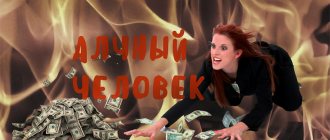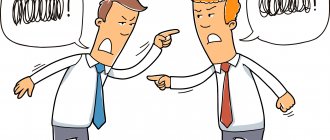State of euphoria - what is it?
Explanatory dictionaries explain the state of euphoria as an elevated mood as a result of pleasant events, a sudden state of delight, happiness. The term is translated from ancient Greek as “well-bearing.” Having reached this state, a person mistakenly believes that he has everything and has nothing more to strive for. There is a decrease in self-control, inhibition and narrowing of consciousness. What does euphoria mean from a psychological point of view? This is the same affect when a person experiences violent emotions, but in a positive way, without negativity. In this state, the main feelings are:
- joy;
- bliss;
- tenderness;
- serenity;
- satisfaction.
Euphoria
A strong emotional state may also indicate the presence of serious illnesses, and its causes include brain damage and physical trauma. From this side it is viewed by medicine and psychiatry. Even a positive affective state may indicate problems such as:
- oxygen deficiency of the brain;
- oligophrenia;
- damage to the frontal cerebral lobes (trauma, dangerous intoxication);
- manic psychosis;
- psychopathy;
- abuse of drugs, alcohol and sleeping pills;
- consequences of severe heart disease, tuberculosis.
Treatment methods
Pathological forms of a euphoric state are usually treated with medications, droppers and psychotherapeutic techniques.
Drug treatment
Treatment of the euphoric state is carried out with the help of tranquilizers, vascular drugs, and antidepressants.
Relaxant
| Drug groups | Influence on aggressive behavior | Examples of funds |
| Normotimics | They relieve sudden mood swings and smooth out the transitions from euphoria to depressive states. Used as symptomatic therapy. | Valpromide, Carbamazelide |
| Tranquilizers | Relaxes and calms, relieves unbalanced behavior. Used for mental forms of euphoria. | Hydroxyzine, Phenazepam |
| Antipsychotic drugs | They are used for mental illnesses that cause a feeling of excessive joy, pleasure and happiness. | Haloperidol, Quetiapine, Clozapine |
| Sedatives with natural ingredients | They relax and calm the nervous system, allowing you to cope with pathological causeless joy. Reduce the symptoms of a euphoric state, relieve hysteria and imbalance. | Persen, Novo-passit, |
| Sedatives with alcohol | Valosedan, Corvalol | |
| Bromine-based sedatives | Adonis Brom, Bromcamphora | |
| Other sedatives | Magnesia, Afobazole | |
| Nootropics | Stimulate blood circulation, improve intellectual abilities and memory. Used for head injuries or problems with blood supply to the brain. | Picamilon, Nootropil, Phenibut |
| Antidepressants | Increases the amount of neurotransmitters in the brain. They help overcome depression, which causes unmotivated delight. | Melipramine, Trizadone, Fluoxetine |
| Diuretics | Cause forced diuresis, help get rid of the euphoric state caused by toxic causes | Diakarb, Trigrim |
| B vitamins | They improve the functioning of the nervous system, help cope with unstable conditions, and smooth out the symptoms of euphoria. | Angiovit, Compligam B, Pentovit |
Read also: Newborn groans and strains in his sleep - 10 main reasons
IV
Important! In case of toxic poisoning caused by abuse of alcoholic beverages or drugs, blood purification using a dropper is used.
The dropper is used for toxic poisoning or simply to remove alcohol from the blood
Under the supervision of a nurse or doctor, the patient is given a mixture of glucose and saline over 30-120 minutes. Once the toxins leave the body, the euphoric state caused by them will also disappear.
What is the euphoria of love?
Often when we talk about euphoria, we think of lovers. It’s as if they are wearing rose-colored glasses: the world is perceived as benevolent, everything revolves around the object of love, joy and delight fill the soul. Unfortunately, this condition tends to end. Love is eternal, but falling in love is temporary! From a physiological point of view, the production of hormones explains falling in love, but the chemical reactions weaken over time. Many people are interested in the question: how long does the euphoria of falling in love last? There is no exact figure, but some scientists say that this condition lasts 1-1.5 years.
Briefly about the euphoric mood
Euphoria is a state accompanied by an increase in the level of happiness hormones and a change in a person’s emotional state.
In simple terms, this is an elevated mood, causeless happiness, carelessness and self-confidence. Euphoria is natural, does not cause harm to human health and occurs quite rarely. It can also be toxic and pathological. These conditions harm the human psyche and can lead to depression, emotional disorders, and suicidal thoughts.
Kvartina Daria May 18, 2020
Euphoria - symptoms
It is unlikely that a person experiencing joy for a certain reason will realize that this is a feeling of euphoria. It can occur in healthy people as a consequence of processes in the brain. When endorphin hormones are produced, endurance increases, feelings of joy and inspiration appear, but the presence of euphoria can be indicated by the following signs:
- Great mood, fun. No problems.
- Increased activity of the individual, talkativeness, but unproductiveness.
- Development of imaginative thinking, tendency to fantasize, ideology.
- Slowing down of intellectual processes.
Feeling a feeling of bliss
What does a person feel in such bliss? How to describe this state? Bliss is the highest degree of pleasure, the feeling of going beyond one's limits. This state is accompanied by liberation from energy clamps. The body has a complete energy shell, and the mind is calm. There are simply not enough words to describe the bliss. You can understand it if you only experience it yourself.
Information from the words of another person will give impetus to the reproduction of bliss by the mind. However, this way cannot achieve true bliss. A person must feel for himself how the body experiences sensory harmony, a reconfiguration of its thinking and emotional perception. The state of ultimate existence cannot be understood. It can be compared to the final stop of your pleasant cruise, the limit when nothing else is needed. The depth of a person affects the level of bliss experienced.
Emotion of delight
An extraordinary state of joy, its strong jump is delight - an emotion with a positive connotation, high intensity of manifestation and a short period of action.
External signs of a person showing an enthusiastic emotion are slightly raised eyebrows (a similar sign with surprise) and radiance, sparkle and joy in the eyes. However, an enthusiastic person smiles a little differently than a joyful, happy one. The smile is wider, stretched to the sides, with a rounded lip line and a noticeably lowered lower jaw.
You can experience a storm of positive manifestations for various reasons. People who delight in a new way and to the fullest can experience pleasure, pleasure, no matter what, including the opinions of others. Enthusiastic people are said to be “mind blown” and are indifferent to what is happening around them. This condition may be the envy of others. And I want to remember the vivid feeling at the cellular level, track it, get used to it in order to enjoy these wonderful moments in the future.
Read our article “Breathing practices: characteristic features of basic techniques.”
What is the difference between ecstasy and euphoria?
Sometimes the feeling of euphoria is mistakenly confused with ecstasy. These states are indeed somewhat similar, but completely heterogeneous from a psychological point of view. What does euphoria mean? A positively colored affect, a state of excellent well-being, both emotional and physical, and ecstasy is an extreme degree of spiritual tension, the highest delight, being seemingly outside oneself. Another important difference is this:
- euphoria for a longer period of time;
- the ecstasy lasts for a short period.
General concept
An attack of euphoria: what is it? Novice psychologists are often interested in this question.
Euphoria is a feeling of a sudden emotional shock, good mood, an explosion of positive emotions, causeless happiness. It makes people more courageous, gives them self-confidence, and increases adrenaline in the blood. Elevated mood, as a rule, does not last long. It is usually accompanied by lethargy, confusion, and loss of critical thinking. Euphoria often acts as a trigger for starting any activity. It helps to make decisions on issues that have been ignored for a long time, to make important decisions.
Euphoria: what does this feeling mean from the physiological point of view is a question for many people. From a physiological point of view, such mood elevations are the result of a sharp increase in the level of four hormones: endorphin, serotonin, oxytocin and dopamine. The degree of elevated mood and happy inspiration of a person depends on their concentration.
Important!
The highest stage of euphoria is called ecstasy.
This condition is addictive. This leads to the person trying to recreate and provoke euphoria in order to feel ecstasy again. Normally, people rarely feel causeless happiness, since this state is very energy-consuming for a healthy person.
With psychological and physical abnormalities, people may experience euphoria much more often. At the same time, it will be replaced by a state of apathy, depression, and moral exhaustion. With frequent mood changes and a regular feeling of happiness turning into ecstasy, a person needs to radically take care of his lifestyle: restore his psycho-emotional state, add moderate physical activity, and do what he loves.
EUPHORIA
A little history
Many years and even centuries before the discovery of amphetamine, its derivatives were already in use among doctors: ephedra in China, khat leaves in Ethiopia and Yemen. In 1887, the German chemist L. Edelano synthesized amphetamine, and in 1912, another German chemist A. Kölisch obtained its derivative, MDMA, which would later be called “ecstasy.” MDMA predicted a great future
in psychotherapy, and not only.
Treatment of neuroses, post-traumatic stress disorders, narcolepsy, excess weight, hay fever, orthostatic hypotension, epilepsy, parkinsonism, alcoholism and migraines is not a complete list of areas where amphetamine can be used. Later it turned out that not everything is so simple: the effect of the drugs was mainly psychological. The person subjectively felt better and more cheerful, but the illnesses themselves did not go away. The expectations were not justified
, and the euphoria - at least among the doctors - quickly passed.
Overdose
Like any drug, cocaine is dangerous in the development of an overdose. A cocaine overdose causes too much stimulation of a person's central nervous system. As the central nervous system becomes overloaded, blood pressure, respiration, heart rate and temperature increase. Also noted:
- agitation
- anxiety
- confusion
- enlarged pupils that do not respond to direct light
- fever and sweating
- increased blood pressure and heart rate
- muscle tremors, especially in the face and fingers
- nausea and vomiting
- pale complexion
- rambling speech
- anxiety
- in the most severe cases, loss of consciousness and coma, which can result in respiratory arrest.
Main reasons
The risk of overdose increases in hot weather due to the dehydration that accompanies cocaine use. But the most common reason is the desire to “catch up” with a new dose. Because the effects of cocaine are short-lived, the user has a strong desire to prolong the pleasure, which encourages him to take another line. However, the body cannot absorb the drug quickly enough. This causes cocaine to accumulate to toxic and lethal levels.
An overdose can also occur when cocaine is used together with other psychoactive substances (for example, heroin, marijuana or alcohol).
First aid
It is important to understand that patients with cocaine overdose can be aggressive and disoriented. They often experience delusions of persecution and hallucinations.
Caution should be exercised as such a person becomes somewhat dangerous to others. Physical restraint should be avoided whenever possible due to the risk of fever
In any case, you should call an ambulance.
If a person begins to lose consciousness, try to maintain contact with them to prevent them from falling into a coma. Place the patient on their side to prevent choking if they vomit, and provide fresh air.
Health care
The ambulance team arriving at the scene assesses the patient’s condition, based on which they prescribe a set of emergency measures. When respiratory function is depressed, artificial ventilation is used, and for cardiac arrhythmia, magnesium sulfate or anaprilin can be prescribed. Doctors also carry out measures aimed at detoxifying the body (droppers with glucose or saline solution, plasmapheresis).
"Deadly" high without drugs
Parents! You should know about this. Forewarned is forearmed.
“Dog high” (“Space Cowboy”, “In Seventh Heaven”) or the game of choking is a way of obtaining dubious euphoria, common among modern children and adolescents.
To get a high, the holotropic breathing technique and a special method of tightening a rope around the neck are used, which then must be quickly removed. After temporary hypoxia, blood suddenly rushes into the brain, and the person sees hallucinations and experiences a state of intense euphoria. Yes! This is a “high” without drugs! But how many lives have already found themselves in that same “seventh heaven”!
Symptoms by which you can understand that your child is “playing” to be choked:
- characteristic bruises on the neck (or a mark from a rope);
- frequent fainting;
- dyspnea;
- lethargy;
- very pale skin;
- “bruises” under the eyes;
- the desire to retire, to be alone.
Other dubious ways to achieve euphoria without drugs are short-term pinching of the carotid artery or inducing fainting by pressing on the chest of someone standing against a wall, limiting the flow of air. Popular among schoolchildren. Children usually gather in groups to get high in this way.
Even if these “games with death” do not end in her favor, they have disastrous consequences for the body. Due to a constant lack of oxygen, irreversible changes develop in the brain: decreased intelligence, memory impairment, severe lethargy, irritability and insomnia. An ischemic stroke may develop. Due to oxygen starvation, the heart also suffers.
Road in stone
Artificial ways to achieve a state of euphoria, unfortunately, are well known:
Photo by Andrea Piacquadio from Pexels
- influence of narcotic substances: under the guise of narcotic drugs one should understand various organic and synthetic substances, alcohol. The effect of these substances on the body and psyche differs in physiological reaction, the meaning remains the same: in this way a person tries to solve the problems of his interaction with the outside world.
Escape to a state of blissful detachment from the problem is the main goal. The problem is that the body gets used to the constant presence of stimulating substances, and there is a need to constantly take and increase the dose;
- pharmacological drugs: sleeping pills, antidepressants and similar substances. The use of these drugs should be as directed and under the supervision of a specialist, since they can cause dependence in a pattern very similar to the use of narcotic substances;
- Gambling addiction: the pursuit of thrills that cause the release of hormones. It usually starts out quite harmlessly: just having a good time. But having once experienced the feeling of euphoria from winning or playing the game, you want to experience it again, and to repeat it you need to play, and the level of extreme must increase.
The moral of this story is
Amphetamines do not cause physical dependence (although, perhaps, at the moment there is simply no clear research on this topic). However, the very moment of stopping the effect of the drug is so difficult and painful that it forces some to take it regularly and for a long time only for fear of worsening the condition upon withdrawal. This is where the whole insidiousness of amphetamines lies: in fact, it’s not easy to “jump”
, the psyche is used to it and asks for more and more! Most often it is not possible to come to an amicable agreement. To break out of a vicious circle, comprehensive treatment is required, including medications to combat depressive, paranoid and asthenic conditions, and psychotherapy to set priorities, outline new goals in life and relearn how to enjoy without a narcotic crutch.
Tags:
- Drugs
- Addiction
Abuse and government control
But it has just begun to gain strength among ordinary people: the drug went to the people - and people liked it. Amphetamines were taken in pill form (ecstasy and amphetamine sulfate capsules), snorted, smoked (methamphetamine hydrochloride, or “ice”), and injected intravenously. Catholic pastor Michael Clegg, who dubbed MDMA "ecstasy", considered it his sacred duty to provide his parish with a good "parish". Apparently, there were some machinations of the Evil One. The government (and not only the United States) did not like this turn of events - amphetamines were partly banned
, and partly (for example, Ritalin, used in the treatment of attention deficit disorder with motor hyperactivity)
they were brought under control
. In Russia, many amphetamine precursors have also been discontinued or placed under strict control, or attempts to obtain the coveted formula from other drugs have been made economically unprofitable. A forced measure, but it works. Recently, in addition to ecstasy, “speed” (or “speed”), “hair dryer” and a host of other substances are in use on the underground market: drug chemistry does not stand still. Long-acting drugs have appeared - their effect lasts up to several days.











